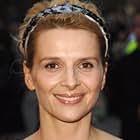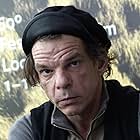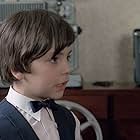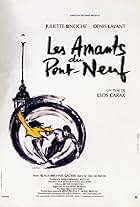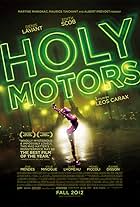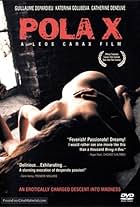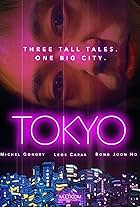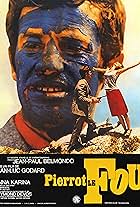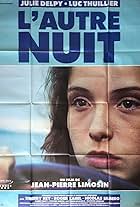I think music used throughout this reveals quite a bit of the cinematic exercise.
- Prokofiev's Roméo and Juliette, so a ballet, a cinematic opera on forbidden love between youth that aches to dream. Love that cannot be consummated in the ugly day of light and has to take to dreams, liebestod, Tristan and Isolde.
- Limelight tied into this, that precious bit of Chaplin beneath the big old sappy narratives that was purely evocative body, that was in essence a dance between innocence and star-crossed fate.
- David Bowie, 'Modern Love' aptly enough, so the rush of purely energetic instrumentation, dazzling camera beats, irony, New Wave atonality, in this case the song randomly caught on radio and meant to guide feelings, a dadaist gesture. Denis Lavant leaps across the frame with his wiry seething-petite frame that reminds a bit of the old silent comedians, he's a real pleasure to watch just move.
In something like Beau Travail also with Lavant and operatic, space is arranged bodily, the whole thing is cinematic and flows. Not so here. The guy responsible for this wants to be a little like Godard, so we have the interminable recitations, the poetry, the deliberately crude crime plot where you only need a gun and a girl, always Godard's weaker spots.
This too bad. Because there are visual moments here that left me practically giddy, for example love as a matter of leaping from a plane, a matter of joint flight and tenderly balancing mid-air.
Instead we get a patchy, stuttery ride that only now and then blossoms into some internal scenery.
The opportunity missed is that the eye dances but is not fully consumed with its musical capacity. Nouvelle Vague ruins this by proxy. I like to think that Wong Kar Wai saw this and immediately knew which parts worked.











